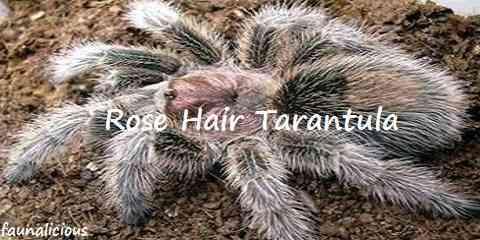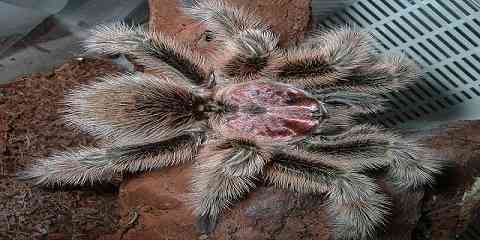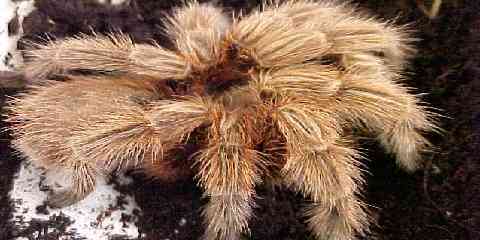Rose hair tarantula (Grammostola Rosea) is found in deserts and scour terrains of Bolivia, Argentina, and Chile. They are a delightful animal groups, a few examples being more splendidly shaded than others.
Similarly, as with most desert staying tarantulas, these creatures are travelers, living single lives and fighting for themselves. They are likewise nighttime, spending their days in the safe house of damp, cool tunnels, and wandering out around evening time looking for prey or a potential mate.

Rose hair tarantula also know as the chilean red-haired or chilean redback/flame or chilean fire tarantula and chilean rose tarantula. This species is right now in a condition of taxonomical transition. There are contentions demanding that the rose hair tarantulas we know about are really three separate subspecies.
Others express that they are a solitary animal types, however with different normally happening shading stages. Regardless, any alleged rose hair tarantula offered available to be purchased ought to be relied upon to have fundamentally the same as care prerequisites to those delineated here.

Due to their compliant and unsurprising conduct, rose hairs have turned into a most loved animal types among starting tarantula specialists. What’s more, they are extremely tough, and can withstand a wide assortment of natural conditions, making hostage cultivation rather straightforward.
Facts of Rose Hair Tarantula
-
Size and Longevity
-
Housing
-
Heating and Lighting
Chilean rose hair tarantula is a genuinely moderate developing animal groups, taking up to 4 years to achieve development. Grown-ups will run in estimate, yet the normal leg traverse is 4 to 5 inches, with the periodic female getting marginally bigger.
Likewise, with all tarantulas, females outlast their male partners extensively. At the point when guys achieve se*ual development (demonstrated by the nearness of physical se*ual qualities after a last shed) their life is almost finished.
Shockingly guys of this species rarely live more than 4 or 5 years. Females notwithstanding, can without much of a stretch live to be 15 years of age, and 20-year-old rose hairs are not incomprehensible.

In principle, tarantulas might be housed in any protected, all around ventilated walled in area of proper size. Little plastic “Kritter managers” and 2 to 5-gallon glass terrariums are perfect. Glass fenced in areas are more alluring because of the simplicity of warming them amid cooler months.
Rose hair tarantula neither need or need a gigantic fenced in area. They are almost visually impaired, and depend for the most part on feeling of touch to explore and translate their environment.
Lighting isn’t important for rose hair. Truth be told, most species avoid brilliant light, and will probably be watched doing common practices if the lighting is delicate and diminish.
Normally encompassing room lighting is adequate. Also, overhead brilliant lights tend to dry out the walled in areas, making it difficult to keep the moistness at a worthy level.
How to Care Rose Hair Tarantula

Rose hairs are among the most accommodating and calm of all tarantula species. Nonetheless, as with any tarantula, it ought to be recollected that rose hairs are venomous, regardless of whether just somewhat so.
Most people experience the ill effects of a rose hair nibble, rather encountering confined agony, tingling, and consuming. Shockingly, every individual will respond in an unexpected way, and you won’t know whether you have an issue until sometime later.
In any case, numerous individuals do deal with their chilean rose tarantulas, and as long as it is done painstakingly, deferentially, and occasionally, no mischief will go to the creature. Simply recollect that you are doing as such at your own particular hazard.